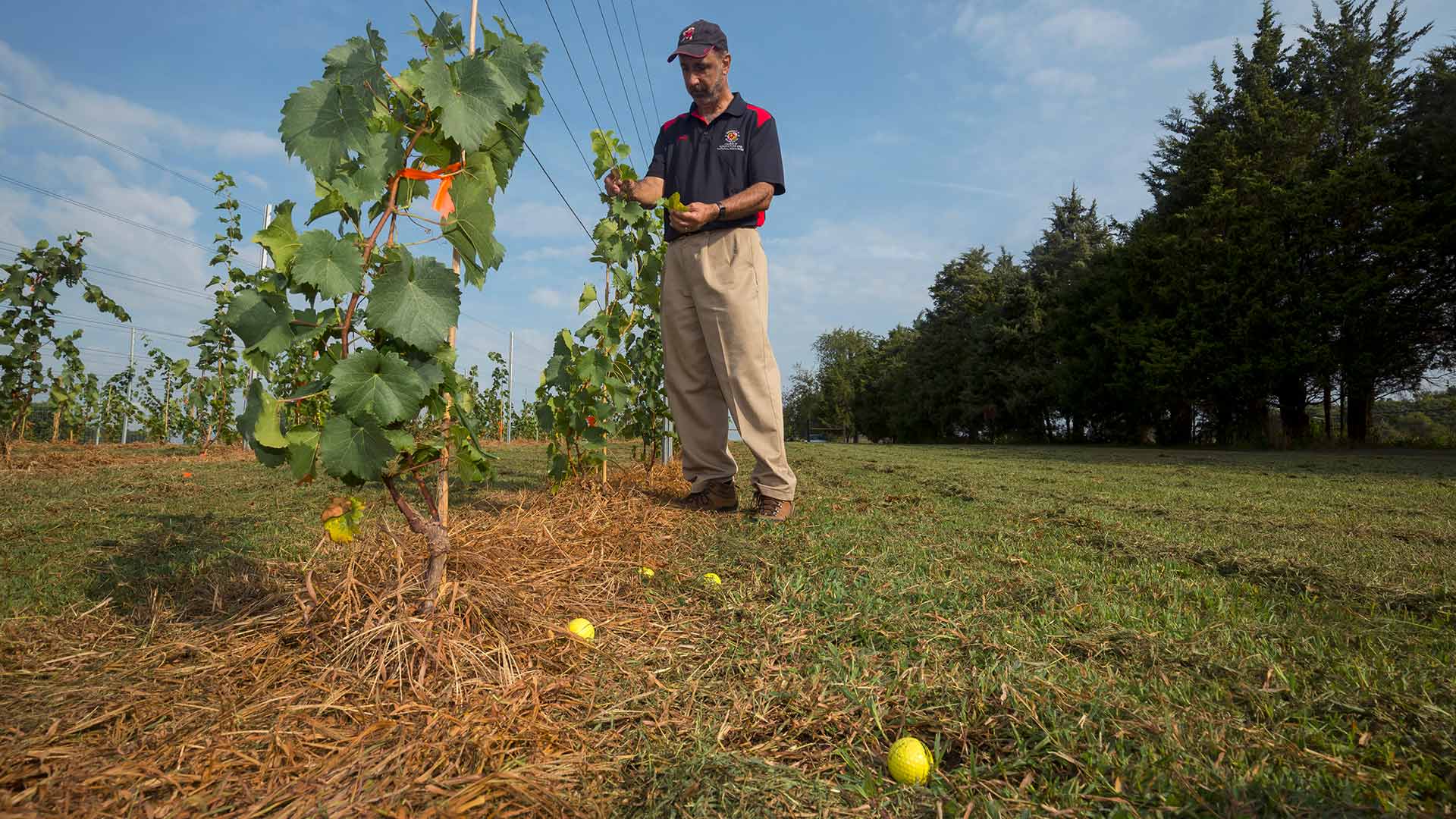- September 30, 2019
- By Dan Novak M.Jour. ’20
Hook a ball a bit too far off the driving range at the Poolesville Golf Course, and it might land in the newest addition to the Maryland wine industry.
About 200 yards dogleg left from the tee, lies a quarter-acre vineyard planted with chardonel, a hybrid grape used for dry white wines. Planted this spring in a large unused plot of land adjacent to the golf course, the vineyard is the first step in an ambitious project led by the Montgomery County Revenue Authority and University of Maryland Extension, which will provide hands-on learning for students in the College of Agriculture and Natural Resources.
“We really want to create a large and significant educational partnership,” said Joe Fiola Ph.D. ’86, viticulture specialist at UME and award-winning winemaker who advises vineyard and winery owners throughout the state. Learning vineyard management and wine production in a small commercial setting like what’s being developed in Poolesville, he said, will be a “priceless” opportunity for students from UMD, the Universities at Shady Grove and Montgomery College, as well as the commercial industry.
Over the next four years, the extension and MCRA, a nonprofit public corporation that supports economic development in the county and operates nine public golf courses, will expand the vineyard to one acre with a wide variety of grapes. Construction is also set to begin at the end of the year on a custom crush facility, which provides wine processing equipment to local grape growers.
“It's pretty exciting to learn something new but also something that's really going to benefit local agriculture as well as local community,” said MCRA Director of Agronomy Jon Lobenstine, who maintains the vineyard with Fiola’s guidance. He expects the chardonel to reach a normal harvest by 2021.
Twenty years ago, lacking significant state or business support, Maryland was “one of the worst states in the country” for producing wine, according to Fiola. But thanks to regulatory changes and more state interest starting in the mid-2000s, Maryland has gone from 11 wineries in 2001 to over 100 today, some of which have gained international recognition.
Fiola sees the vineyard and production facility at Poolesville as a way to cultivate the next generation of Maryland winemakers.
“You can’t make great wine without great grapes,” he said. “They’re inseparable.”
